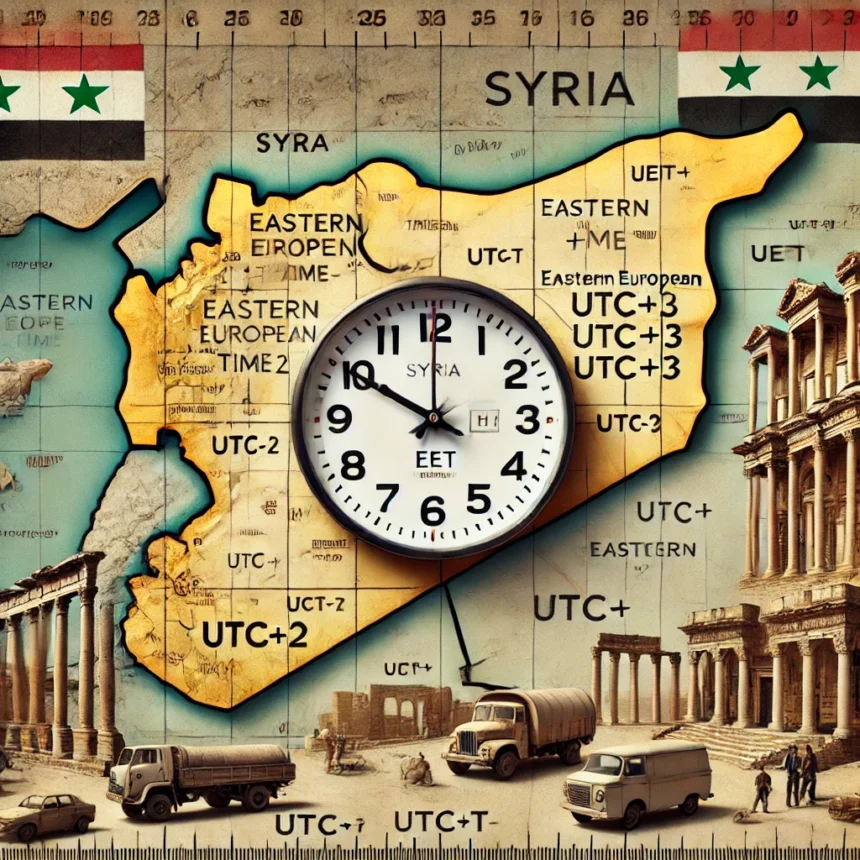Introduction: Understanding Time in Syria
The “time in Syria” can vary due to regional practices and changes throughout the year. Knowing the time is essential for travelers, business communications, and anyone with connections in the region. This guide explains the current time, differences in regions, and seasonal changes that affect Syria’s time zone.
Time Zone in Syria
Syria typically observes the Eastern European Time (EET), which is UTC+2. However, like many countries, the “time in_Syria” changes for daylight saving adjustments during certain months.
Daylight Saving in Syria
Each year, Syria moves its clocks forward for daylight saving in March and back again in October. This shift means that during daylight saving time, the “time in_Syria” adjusts to UTC+3, known as Eastern European Summer Time (EEST).
Regional Variations in Time Across Syria
Most regions within Syria observe the same time zone, but slight variations in daily routines and sunrise/sunset times can lead to minor differences in daily schedules. Nonetheless, official times remain consistent nationwide.
Why Does Syria Use Eastern European Time?
The alignment with Eastern European Time connects Syria with neighboring regions and facilitates international trade and communication. By staying in sync with countries in similar time zones, “time in_Syria” aligns with business hours in Europe and the Middle East.
How to Check the Time in Syria
Tracking the current “time in_Syria” can be easily done using global time apps, clocks, or websites offering real-time updates. These sources adjust automatically for daylight saving, so you can rely on them for accurate local time.
Impact of Time Changes on Daily Life in Syria
Each shift in “time in_Syria” for daylight saving can have impacts on daily life. These include adjustments in work hours, school times, and public transportation schedules. Understanding this shift is essential for anyone coordinating with Syrian residents.
Historical Overview of Time in Syria
Syria has aligned its time practices with regional partners for decades. This historical consistency ensures that Syria maintains strong ties with neighboring nations in terms of time alignment.
Importance of Accurate Timekeeping in Syria
For those living in or visiting Syria, accurate knowledge of the current “time in_Syria” is crucial. Businesses, schools, and government offices follow strict schedules that change with daylight saving, impacting the timing of various activities.
Why Time in Syria Matters for Travelers
Travelers visiting Syria need to stay aware of local time changes to avoid missed appointments or transport connections. Familiarizing yourself with the “time in_Syria” helps you stay on schedule.

FAQs About Time in Syria
Q: What time zone is Syria in?
A: Syria follows Eastern European Time (UTC+2) and shifts to Eastern European Summer Time (UTC+3) for daylight saving.
Q: Does Syria observe daylight saving?
A: Yes, Syria adjusts its clocks in March for daylight saving and reverts in October.
Q: Is Syria’s time zone the same year-round?
A: No, it varies due to daylight saving adjustments, so checking the exact “time in_Syria” is essential.
Q: Why is it important to track the time in_Syria?
A: Accurate timekeeping is crucial for scheduling and coordinating across regions, especially for travel and business.
Conclusion
Understanding the “time in_Syria” helps maintain punctuality, especially for those living, working, or traveling there. By knowing the current time zone, daylight saving adjustments, and historical practices, you can stay synchronized with local time.




